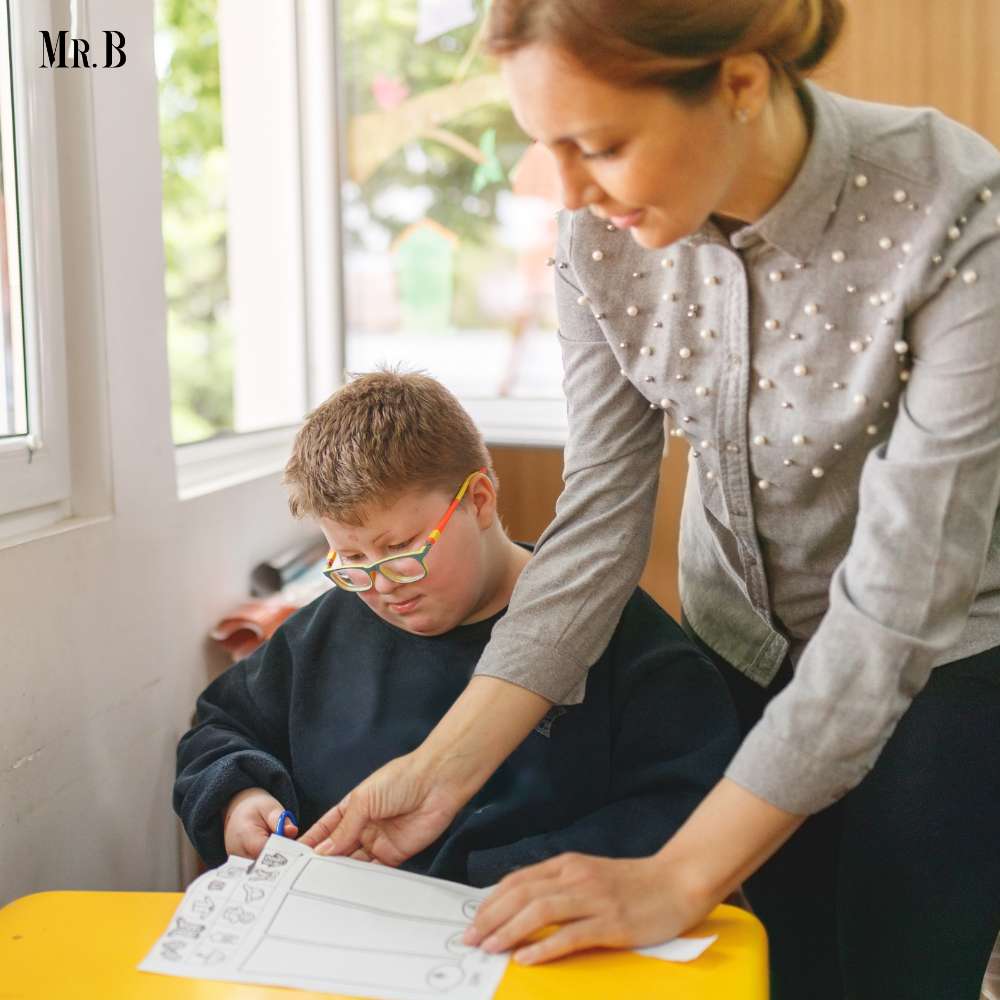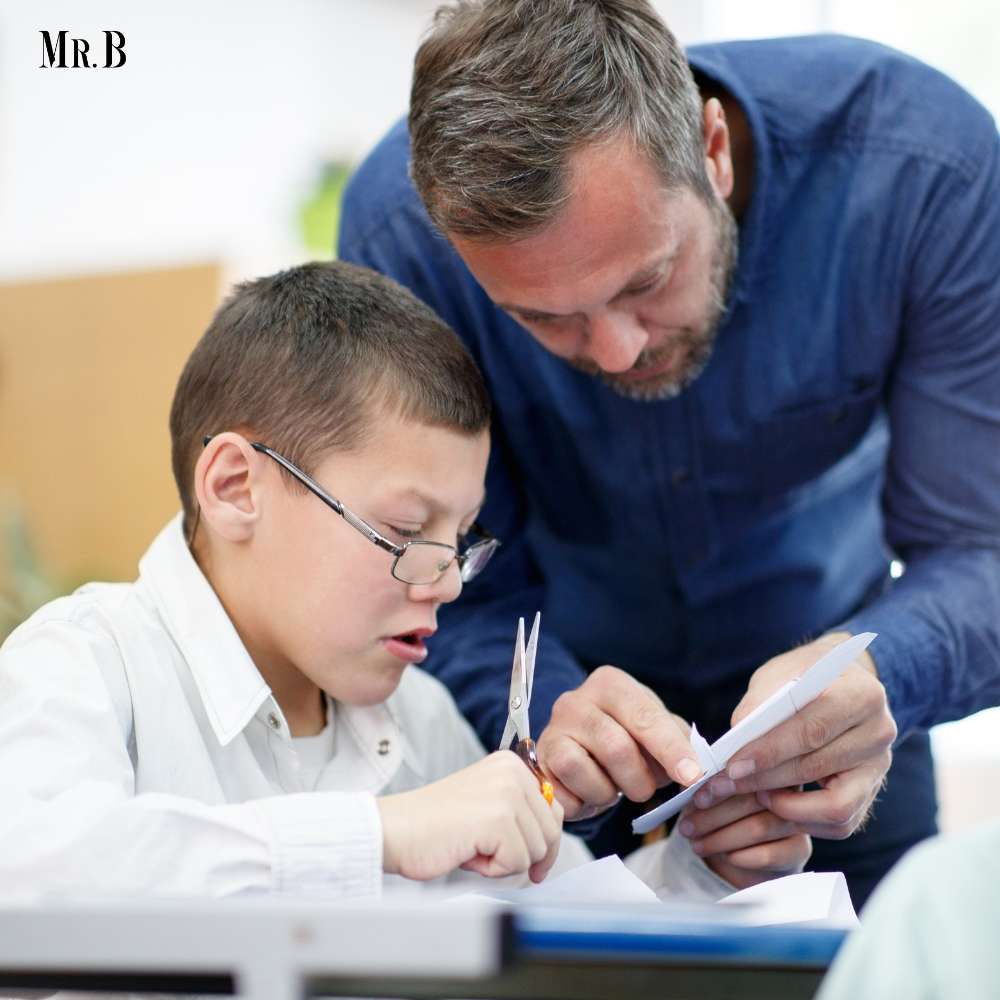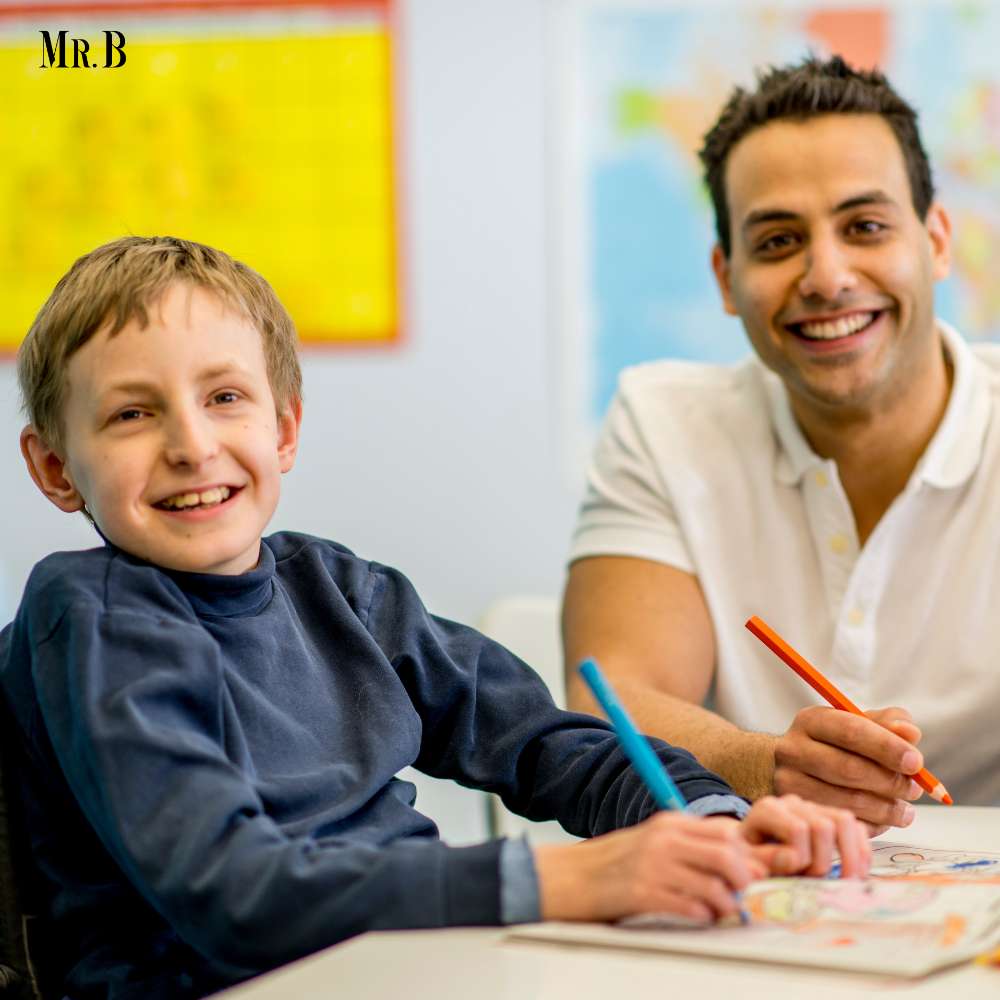A special education teacher is a guiding light to special students. These students learn the same information and skills as other children. The only difference is these students may find it difficult to cope with it sometimes. A special education teacher helps the students in grasping concepts as they face emotional, mental or learning disabilities. Children often with a variety of learning challenges are often affected by how they learn and interact within their classroom.
The teacher is meant to support this wide range of learning disabilities. Such a teacher plays an important role in proper education of exceptional students. These teachers are trained to craft individualized educational plans (IEPs) for each student in order to address their unique needs. It helps them to make progress and in their academic, and socio-emotional development. Students may adapt teaching methods and materials to accommodate their students learning styles.
Here is more on the Role of a Special Education Teacher and What are the Skills required to become one.
Skills Required to Become a Special Education Teacher: The Heart and the Art
Becoming a special education teacher is a noble and demanding calling that requires a unique set of skills and attributes. It’s a profession that combines expertise with empathy, patience with persistence, and adaptability with advocacy. Let’s explore the essential skills and qualities that make a successful special education teacher.
1. Patience:
Special education teachers must have unwavering patience to work with students who may require extra time to grasp concepts or express themselves.
2. Empathy:
Empathy is a cornerstone of this profession. They must understand and connect with the unique challenges and experiences of their students.
3. Flexibility:
Every student with special needs is different. They should be flexible in their approaches and adapt their teaching methods to suit each individual.

4. Communication:
Effective communication is vital in collaborating with students, parents, general education teachers, and specialists. These teachers must convey complex information clearly and compassionately.
5. Advocacy:
Advocacy for their students’ needs is an integral part of the role. Such teachers work to ensure that their students receive the resources and support required for success.
6. Problem-Solving:
In the world of special education, no two days are the same. These teachers must be adept problem solvers, ready to address unexpected challenges and find innovative solutions.
7. Organization:
Managing IEPs, assessments, and lesson plans requires strong organizational skills. Such teachers need to stay on top of a multitude of details.
8. Cultural Competence:
Understanding the cultural backgrounds and diverse perspectives of students and their families is essential in creating an inclusive and supportive learning environment.
9. Teamwork:
Collaboration with other professionals, such as speech therapists and occupational therapists, is common. Special education teachers must work effectively as part of a team.
10. Adaptability:
The ability to adapt to various teaching strategies, technologies, and classroom environments is crucial. Special education teachers may work in a range of settings, from self-contained classrooms to inclusive classrooms.

Role: Nurturing Potential and Fostering Inclusion
The role of such teachers is complex, multifaceted, and profoundly impactful one. Special education teachers work with students who have a wide range of disabilities, including learning, physical, sensory, emotional, and developmental disabilities. Here’s an in-depth look at their responsibilities:
1. Individualized Education Plans (IEPs):
One of the core responsibilities of a special education teacher is to develop and implement Individualized Education Plans (IEPs) for each student. These tailored plans outline specific learning goals and accommodations to address the unique needs of each child.
2. Adaptable Curriculum:
They modify and adapt the standard curriculum to suit the individual needs and abilities of their students. They create learning materials that facilitate the comprehension and engagement of students with diverse learning profiles.
3. Inclusive Instruction:
In an inclusive classroom setting, these teachers collaborate with general education teachers to ensure that students with special needs are fully integrated into the learning environment. This collaboration may involve co-teaching or providing support to students in the general education classroom.
4. Assessment and Evaluation:
Special education teachers continually assess and evaluate the progress of their students. They use various assessment tools and methods to monitor academic, social, and behavioral development, making adjustments to instructional strategies as needed.
5. Behavioral Management:
For students with emotional and behavioral challenges, these teachers employ behavior management techniques to promote positive behavior, emotional regulation, and conflict resolution skills.
6. Specialized Instruction:
In some cases, special education teachers offer specialized instruction in areas such as communication, mobility, and life skills, equipping students with the tools they need for greater independence.
7. Advocacy and Support:
They serve as advocates for their students, working closely with parents, guardians, and school administrators to ensure that the educational needs of each child are met. These teachers offer invaluable support and guidance to families.

8. Joint Partnerships with Specialists:
Special education teachers often collaborate with speech therapists, occupational therapists, and other specialists to provide a comprehensive support system for students with diverse needs.
9. Crisis Intervention:
In instances where students may face emotional crises or behavioral challenges, special education teachers are trained to provide crisis intervention and emotional support.
10. Professional Development:
As the field of education continually evolves, such teachers engage in ongoing professional development to stay informed about the latest research, strategies, and best practices for supporting students with special needs.
Conclusion:
The role of a special education teacher is one of great significance and responsibility. These professionals dedicate themselves to nurturing the potential of students with special needs, creating inclusive environments, and serving as advocates and mentors. The skill set required for this profession is a unique blend of expertise and empathy, making them true heroes in the world of education. Their profound influence extends far beyond the classroom, shaping the lives of students and their communities, and promoting a brighter and more inclusive future for all. Special education teachers, with their unwavering commitment and compassion, are the guiding lights that help students with diverse learning needs navigate the path to success and self-fulfillment







